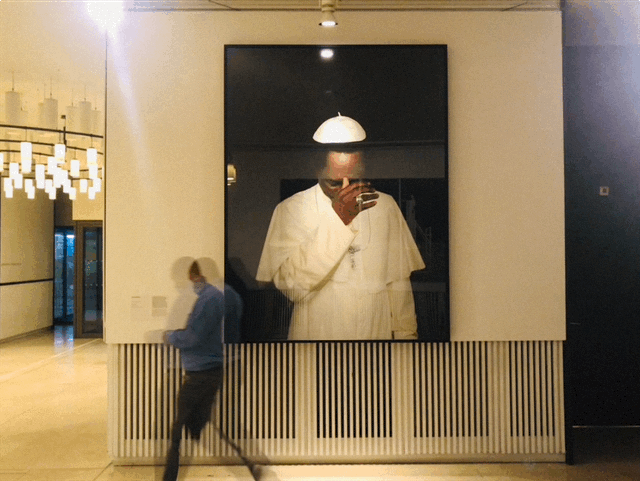The spirit of play pervades human actions and interactions. Little kids play-act to figure things out, to express their thoughts and emotions, to understand the world and their place in it. And also to have a tremendous amount of fun. Here’s a little boy play-acting breastfeeding with a doll. From a single image we can’t really know how the boy is thinking and feeling, but we’ll hypothesize that he’s dealing with something deep inside himself, perhaps something having to do with love and nourishment, perhaps having to do with loneliness and neglect.
Play-acting is central to learning, and learning is central to survival. Gotcha, ergo, voilà: playing is vital, and the absence of playing is fatal.
All the world’s a stage,
And all the men and women merely players.
They have their exits and their entrances . . .
A little effort of the imagination lets you see every human interaction as a dramatic event in an infinite play. We are players, as Shakespeare said, but we are also the characters that our players perform. The character of Father Berating the Son; the character of Fool Begging for Attention; the character of Dutiful Wife with a Dark Secret . . . all of us, at all times, are characters with many dimensions, playing, playing, and playing every day, all day long. All is play.
The radio is playing, the TV is playing. If you hear any one snippet of music, someone is playing it. A fellow like me starts playing music at age eight. Fifty-four years later he’ll have played for thousands and thousands of hours. “It’s normal to play.”
You play soccer or volleyball, and you watch other people play their sports; you’re a fan (short for fanatic). You “play the market,” and so do the brilliant financial brains taking care of your pension fund. The Army and Navy play “war games” to figure out strategy and tactics. Probability theory, central to mathematics and also to our daily lives, came into existence because of gambling. Simplifying it, the guys wanted to know their odds. Game theory, another vital dimension of mathematics, takes insights from certain types of play and applies them to the social sciences, economics, and much else besides.
You play with an idea, trying to see what you can do with it. You “play it up” or “play it down,” depending on the setting. Right now I’m playing up the idea of play.
Ritual is play, and ritual is behind many if not most interactions between people. Hand shakes: play. Air kisses: play. The Mass: extremely elaborate play. Baptism: play. Wedding: play. Yes, we play at funerals too.
Mourning, however, isn’t play. It’s a very serious business.
Broadly defined, play is at the core of existence. Play is love, direction, meaning. Play is human connection, give-and-take, learn-and-grow. Play is the why and the how.
Eve-ry-thing is play. P-L-A-Y.
From my favorite website, etymonline.
As a player, you can be willing, astute, agile, and engaged. Then you’re “alive.” Or you can sit in the corner and “play dead.”
©2021 Pedro de Alcantara



